Buying a spa can be confusing. With so many options out there and lots to consider, it can be hard to know what to look for, what’s important – and what’s not.
Top 5 spa buyer mistakes and how to avoid them
A spa pool is a big investment so you'll want to make sure you make the right choice, first time. In this article, we share the top 5 mistakes spa buyers make — so you can avoid them.
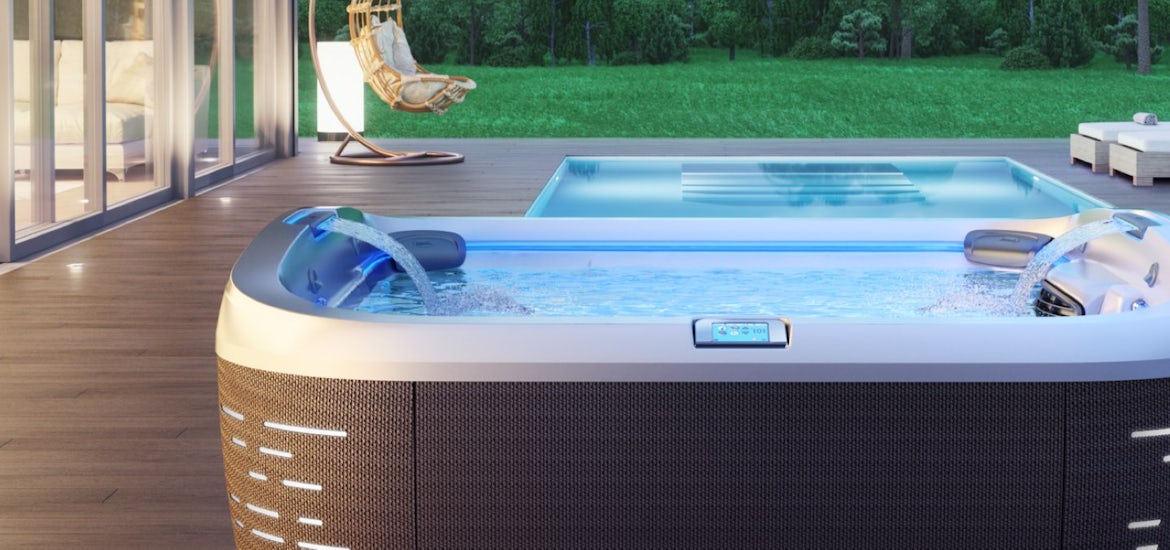
Watch: Top 5 spa buyer mistakes and how to avoid them
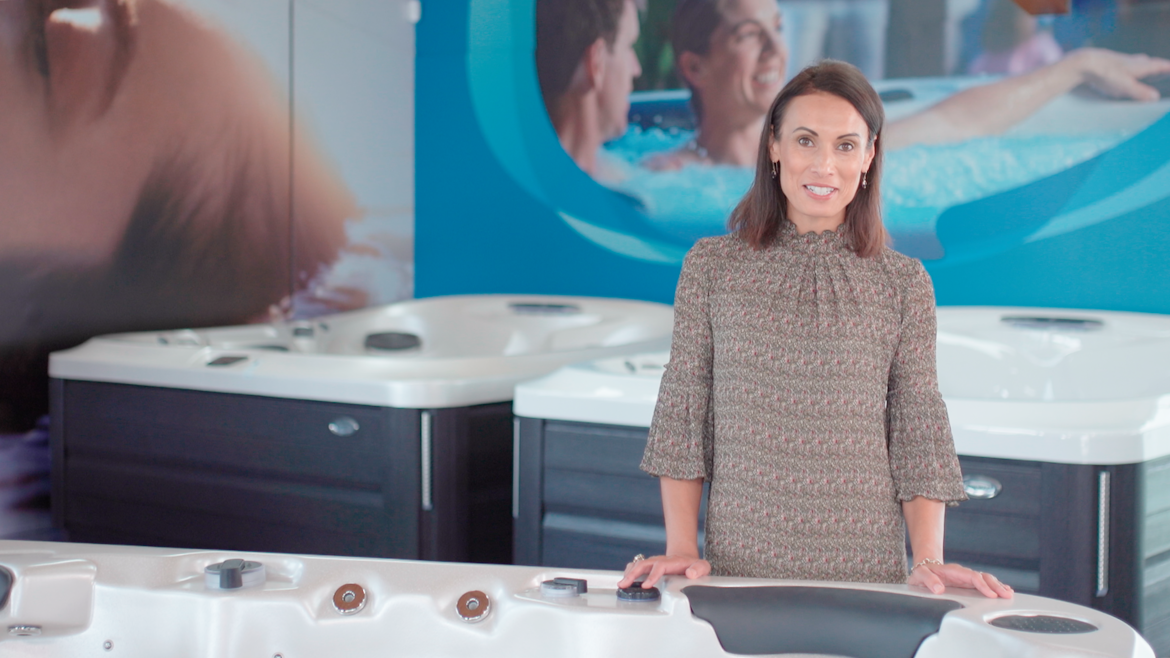
In this article you’ll learn about top 5 mistakes spa buyers make and top tips. With this knowledge and awareness, you’ll be better prepared to buy a spa with confidence!
1. Buying a spa based on price alone
Are you spa shopping on a budget? Do you have a price in mind and are looking for a spa to match that figure? Stop right there!
One of the biggest mistakes spa buyers make is focusing solely on the retail price of a spa – without considering other factors such as ongoing running costs.
The truth is, paying a little more upfront for a better quality spa, is likely to save you money in the long run. For example, spas in the mid-range price bracket should have better quality spa insulation, water care system (including filtration, ozone and UV), a heavy-duty insulated cover and more. Learn more about what to look for in a quality spa pool in this article.
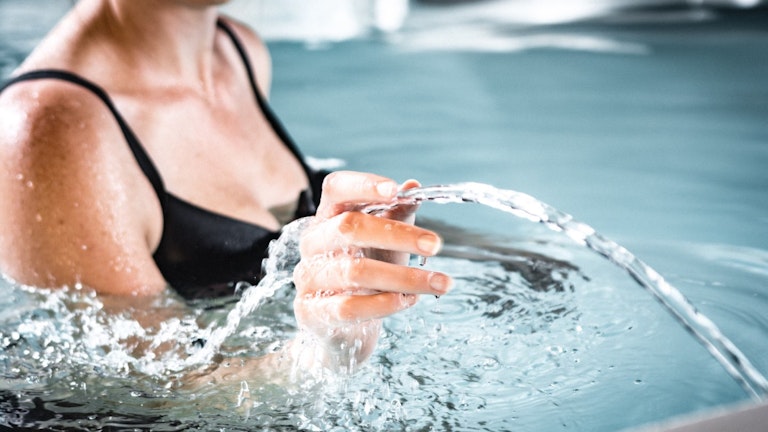
If you’re investing in a spa with the intention of keeping it for a long time, it’s wise to look beyond the retail price to the long term savings it will give you. You can also read this article to learn more about the running costs of a spa pool e.g how much electricity does a spa pool use?
Top tip: When buying a spa ask about the ongoing running cost of each model. Think about how much you are prepared to pay per month to heat your spa and find a spa that meets your expectations. All spas cost money to heat and power. In general, the more you pay upfront - the more energy-efficient the spa and the lower the running costs.
Has this got you wondering what the top spa brands are on the market? In this article we list New Zealand’s leading brands and their pros and cons. Click the button below for the Best Spa Pools in New Zealand - Top 6 Spa Brands Reviewed
2. Buying a spa with poor insulation
Insulation is one of the most important features of spas and swim spas and determines how high or low your running costs will be. In theory - the better the insulation, the lower the running costs.
Heating the spa water is where most of the running costs go. Why is that? When the water temperature drops, the heater in the spa has to replace it. No surprises that the more heat you lose from the water, the longer the heater has to run and the more power you use.
To minimise running costs, you’ll want to invest in a spa with really good insulation that keeps as much of the heat in your spa as possible. The more effective the insulation, the lower the heating cost.
Some spa buyers make the mistake of buying a spa with poor quality insulation. Good levels of insulation is also one of top 9 things you should know when buying a spa.
There are three main types of spa insulation (ordered by the least to most efficient)
- Foam on shell
- Perimeter or cabinet insulation
- Full foam insulation (inside the spa cabinet)
They each have their pros and cons (and you can read a review of the three insulation types here) but it’s important to note that foam on shell insulation, although cheap and commonly found on entry level spas and swim spas, can cause a spa to cool down quickly.
If the plumbing of a spa is placed on the outside of the foam on shell, it’s exposed to cooler air and the spa loses more heat. Spas with this type of insulation can cost more to run.
Top tip. Watch this video below - Spa Insulation - good, better, best. By removing part of the spa cabinet and looking inside, this video will help you understand what different insulation types look like and how effective they're likely to be at retaining heat in the spa water.

3. Thinking the spa will look after itself
A spa or swim spa is like a car, house or pair of good quality shoes. It needs to be regularly maintained in order to have a long lasting life.
Some spa buyers make the mistake of assuming that spas don’t require maintenance. There are other spa buyers who may buy low quality maintenance products to cut costs - are cheap spa chemicals worth the risk? The maintenance jobs are small and if you do them correctly, your spa will run trouble-free for years.
To keep your spa’s water clean and healthy, the ph levels need to be checked regularly. The water also needs sanitising, filters cleaned and the correct quantities of cleaning products and spa chemicals need to be used. This shouldn’t take you much time, around 5 to 10 minutes a week, but it needs to be done regularly. With spa maintenance, consistency is key.
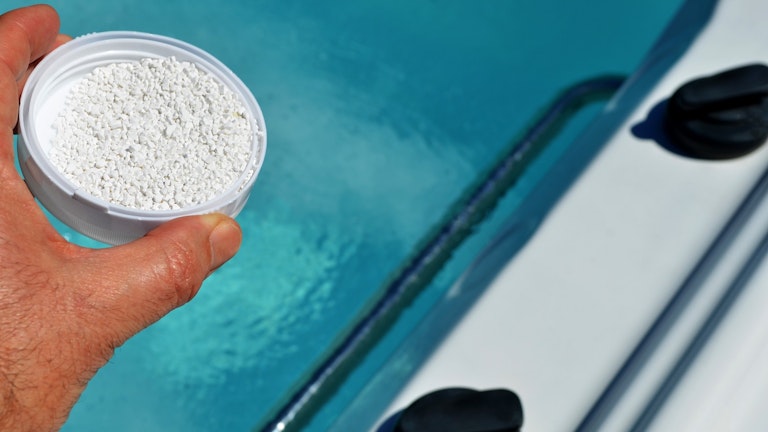
Poor spa maintenance can lead to internal equipment failure, water clarity issues and spa water that’s not regularly clarified and purified can be harmful to your health.
Some spas are easier to maintain than others. You may want to keep this in mind before deciding which spa to buy, depending on how much effort you want to put into maintenance.
If you’re looking at buying a spa or swim spa, ask the salesperson these key questions:
- What chemicals should I use in this spa?
- How often should I replace my filters?
- Do you offer a maintenance service for the spa?
- What does it cost to maintain this spa?
- Does it have an automatic Ozone and UV-C Sterilizer system?
Top tip: Find out what maintenance is required for your particular spa before you buy. Consider getting a spa with an automatic water care system that includes ozone and a UV-C sterilizer to save you time and money. You can read this detailed review on the best automatic sanitising systems.
4. Buying a spa without doing your research
Buying a spa is a big investment. If you buy well, it should last you a very long time - so it’s important to spend a little time finding the right fit for you.
However, some spa buyers put little or no time aside to check if the spa they’re planning to purchase is in fact the right fit.
There are a number of reasons why some buyers jump ahead with the sale. These include:
- Buying a spa based on its appearance. The spa shell, spa design and cabinet may look great but are the quality of the components as good as they look?
- Believing everything the salesperson says without doing some research online or getting a second opinion. Does the salesperson ask lots of open ended questions before suggesting some options? If so, they’re more likely to recommend the best model for the spa buyer.
- Buying a spa based on the advertisements they see. Is there a catch to the messaging? Has the spa buyer looked beyond the promotion to make sure they’re getting a fair deal?
- Buying a spa because it’s on sale for a great price. The retail price may fit your budget perfectly but how about the long term running costs? Can you read reviews, find out from other buyers what the special priced spa is like before you commit to the sale?
- Buying a spa because it comes with a free product. Instead of being enticed into buying a product because it comes with a free accessory e.g. a cover lifter, make the spa features the top priority.
After reading this list, you’ll now have a better idea of why some people may buy a spa based on little research. So, are you wondering what you can do to become more knowledgeable about the spa pool you’re planning to buy? Here’s some suggestions -
- Read articles and watch videos about spas
e.g. What is a spa shell and how will a good one save you money?
- Visit or contact a range of retailers and ask questions about their warranties, customer support, products and more.
- Read this article to find out what you should look for in a spa or swim spa store.
- Look at online spa and retailer reviews. We recommend Trustpilot - the world's most trusted review site.
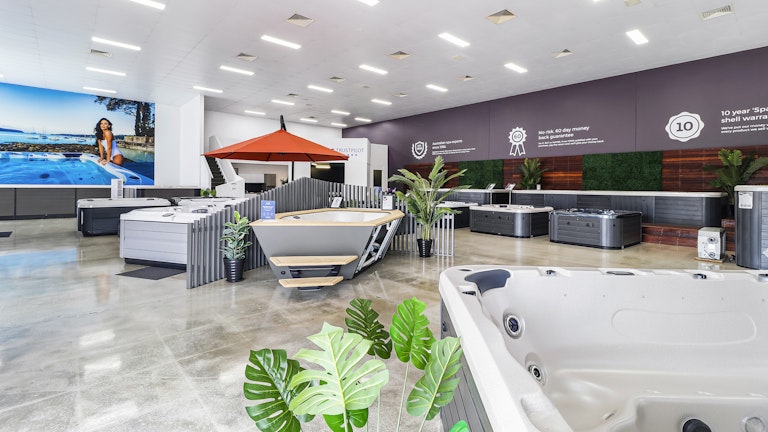
Do you need some help choosing the perfect spa, finding the ideal spa spot or could do with a buyers guide checklist?
See our Spa Buyers Guide to find the answer to these points and more.
Top tip: If you find a spa online that you like, we also recommend that you visit a showroom to see it for yourself. You can also ‘dry and wet test’ a spa to try before you buy. By both seeing and physically getting into the spa will help you feel more confident in your buying decision.
5. Buy from a retailer that is only interested in the sale
Like any industry, some spa retailers are better than others. While one salesperson may be focused solely on their commission and selling stock, others will spend time getting to know you, ask lots of relevant questions and are focused on helping you find the perfect spa - whether it’s bought from them or someone else.
Some spa companies have a team dedicated to looking after customers and answering their questions once they make their purchase. You will want to make sure their after sales customer service team is easy to contact. You could test this out by calling or emailing to see if you can indeed reach them.
However, purchasing from a company that doesn’t provide help or support can become a costly and stressful experience for customers.

What is a sign of good customer care? A sign of a company that will look after you and help plan your spa delivery could come in several forms including a 7 day customer concierge centre. To get an idea of the kind of service you will receive from the salesperson and retailer. We recommend the following tips.
1. Ask the salesperson what support they provide before and after you purchase a spa. Then you’ll know exactly what help you will receive before you make your buying decision. You don’t have to take their word for it either. You can read reviews written on credible review sites such as TrustPilot and put the customer care centre to the test by calling them.
2. Listen to the salesperson. Does the salesperson ask lots of open-ended questions? If they do, they're more likely to know what spa is best suited to you. Do they answer your questions thoroughly or do they divert or avoid them? If you feel you're not getting straight, honest answers then perhaps you should consider another spa salesperson or retailer.
Top tip: A quality spa should last up to 20 years. There’s no doubt that during this time you may need some advice and support to keep it running well. Make sure whoever you buy the spa from provides a good level of aftercare to support you even after you walk out of the store.
In summary:
There are many spas and swim spas on the market. Deciding which spa retailer, spa brand and what spa model you should commit to can feel overwhelming.
Hopefully this article has made you aware of five of the most common problems spa buyers make and how you can avoid them.
For further reassurance, ask yourself the following five questions.
1. What are the day to day running costs of the spa?*
2. Is the spa well insulated? What impact will the quality of insulation have on the cost to run the spa?
3. What maintenance will the spa need?*
4. Are you buying a spa based straight off the website or have you found some promising options and will make a decision after visiting the showroom or having a virtual consultation?
5. Will you be assigned a customer concierge or connected to the company’s customer care service during and after your spa purchase?
If you're happy with the responses, then you should feel much better about your spa buying decision. If there's some unanswered questions,you now know that finding the answers will get you on track to becoming a satisfied spa buyer and spa owner!
Affiliations: Vortex® Spas, Fisher™ Spas and Spa World® are trademarks owned by Vortex Leisure Pty Ltd. The Jacuzzi® brand is owned by Jacuzzi Inc. and exclusively licensed for use to Spa World™ in Australia and New Zealand.